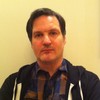Even before Sunday's horrific killing of six men at a Quebec city Mosque, violence directed against Muslims has been an open, dirty secret in the province. Community leaders have been complaining about harassment, vandalism, even physical threats directed against them. Women especially have been targeted when wearing devotional headdress or body-covering clothing like the niqab.Anti-Muslim hate crimes haven't been limited to symbolic, highly inflammatory acts like the dumping of a pig's head on a mosque's doorstep during Ramadan, as happened last year at the Centre Culturel Islamique de Québec, where Sunday's shooting took place. Mosque windows have been broken, death threats have been uttered, cars vandalized and defaced. Megmet Deger told the CBC that following recent acts of vandalism against his mosque in the Montreal suburb of Dorval, members of his community no longer feel safe. "Our lives are in danger," he said.
Advertisement
Islamophobia has been creeping into the public sphere as well. In a local referendum in the borough of Ahuntsic-Cartierville last June, voters rejected a project to turn a community centre into a mosque. The Charter of Values, which would have banned prominent religious symbols in public spaces and from civil servants and seemed to specifically focus on head coverings, was proposed by the Parti Québécois ahead of the 2014 provincial elections. And there has been no shortage of incidents played up in local media designed to spark outrage and stoke anti-Muslim sentiment over the past several years.But where does bigotry devolve into murderous hatred? And why did it happen here, and why now? Academics will be studying that for years to come, but it is probably safe to say that the factors leading up to it go well beyond mental illness and access to firearms.According to Daniel Weinstock, a professor at the Faculty of Law at McGill University and an expert on interfaith relations and religious minorities' issues in Canada and Quebec, the looping echo chamber of politics and media—mainstream, social and fake—swirling around the Muslim community created the environment in which this kind of shooting could occur. To him, the shooting was unpredictable but sadly, not unexpected."We have in Quebec in the last few years had a political climate which, for a variety of political reasons, shone a lot of light on the Muslim community," he says. "They are salient in ways that other communities are not… And they have become salient in the minds of people who have developed murderous intent."
Advertisement
By being so prominent in the news through no fault of their own, says Weinstock, the Muslim community has become a target. No one is shooting up Baha'i centres because nobody is paying attention to the Baha'i. Muslims, on the other hand, have been getting plenty—and well before the advent of Donald Trump's own particular brand of Muslim baiting.Research suggests that there has been an uptick in right-wing extremism in Quebec. In a study released last year, Barbara Perry of the Ontario Institute of Technology and Ryan Scrivens of Simon Fraser University estimate that there are about 100 extreme-right groups in Canada, with up to a quarter of them based in Quebec. Membership ranges roughly between 15 and 100 people.And while those numbers aren't overly impressive, there have been an estimated 800 hate crimes committed in the province between 2010 and 2015. But 2014-15 saw a 50 percent jump from the previous year in the number of reported crimes, from 167 to 257, according to figures provided to the Montreal Gazette by the provincial Ministry of Public Security. According to statistics provided by the Montreal police, the number of hate crimes based on religion (150) was slightly higher than those based on race and ethnicity (146), and far outstripped those resulting from sexual orientation (35).But Weinstock is quick to add that a shooting like Sunday's can certainly happen anywhere where there is a super-charged atmosphere rooted in ethnic or racial tensions. White supremacist Dylann Roof murdered nine black parishioners at a church in Charleston, South Carolina in 2015, as the US was in the midst of a resurgent civil rights movement; days after Donald Trump initiated his Muslim ban, a mosque was torched in Texas."There's a psychological dimension to anybody who gets to the point in their life where they are willing to take up arms and kill defenseless human beings," he says. "Where is that getting triggered? Is the trigger going to be something that directs them towards this target or that target? That depends on what's going on in the environment. And the environment today makes it so that it's not likely that this will happen, but if it does, it is more likely that it will happen to Muslims than anybody else."Follow Patrick Lejtenyi on Twitter.
